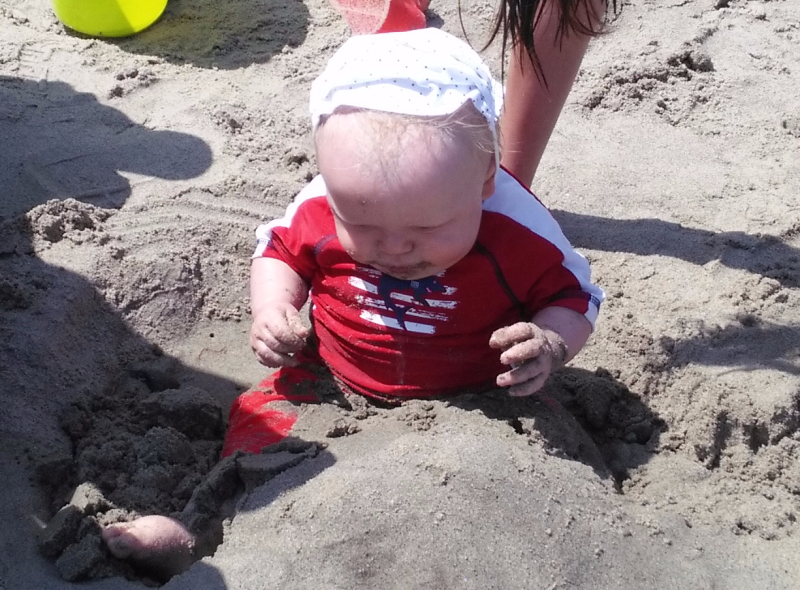

Much to my surprise, I am writing this column from the front porch of our rental house in Ogunquit, Maine. It is the tenth summer that I have spent a week at this beach with my husband, our growing brood of children, and my parents. This year, as the COVID-19 pandemic shut down and cancelled everything else in our lives, I assumed that we wouldn’t be able to make our annual pilgrimage to the shore. But then, at the eleventh hour, COVID-19 cases in Maine and Vermont dropped low enough that both states declared reciprocal travel was allowed, with no quarantine necessary. So, here we are.
It has been a different sort of vacation this year. We wear masks everywhere except in our rental house, on the beach, and while licking ice cream cones on the rocky seaside cliffs. Signs remind us to keep six feet apart. Stores limit the number of shoppers, and restaurants offer mostly take-out or outside dining. The number of summer visitors is noticeably smaller than in previous years: We have plenty of room on the beach and while walking around town, parking is available, and there is very little traffic.
Even the weather during our first few days in Maine was different. As a tropical storm brewed over the Atlantic Ocean off the southeastern coast of the United States, we experienced heavy humidity, cloudy skies, and thick fog that hung around all day. None of this kept us from the ocean, of course; our daughters will plunge into a foggy sea just as enthusiastically as they will a sunny one, and they were especially motivated this year to introduce their new baby brother to the beach.
I have had very little experience with fog in my life, but I have a newfound respect for it. Standing with my daughters in the waves as the fog swirled thickly around us, I looked back at one point and realized that I could barely see the beach. Looking ahead again, I was surprised as the smudged outlines of a lobster boat emerged from the fog, not far from where we were jumping the waves. Things could go terribly wrong in the fog, I thought.
The ocean is an object lesson in our lack of control. In this culture, at this time, we are so rarely confronted with situations in which technology — our smartphones, our GPS, our Alexa — cannot provide assistance at the literal touch of a button. But when we step off the land and into the water, we leave those things behind. Swim in the fog, or through a strong current, and you realize that you are no longer in control; you are at the mercy of nature, and nature is stronger than you.
Of course, in the year of the pandemic, we hardly need this object lesson. We are reminded of our lack of control every time we check the COVID statistics, every time we strap on our face masks, every time we have to weigh the pros and cons of activities we used to take for granted: grocery shopping, seeing friends, going to church, taking a vacation.
We came to Maine armed with enough face masks for every member of our family to wear a different face mask, in colors to coordinate with their outfits, every day of the week. There is a wonderful group of people in this world who have responded to the global pandemic by channeling their creative energy — and also their boredom — into an almost compulsive sewing of face masks. Our family has benefitted from the generous efforts of a grandmother and a friend, and we now have enough masks to wallpaper a small room (with more on the way, I hear.)
On the morning after the tropical storm blew through Maine with overnight rain, my daughter posed the question: “What will everyone do with all their face masks after the coronavirus is over?”
Here are some ideas our family generated:
-Dangle a pair of masks over your ears as earrings.
-Place a mask over your eyes for use as a sleep mask — or a blindfold for “Pin the Tail on the Donkey.”
-Wear the mask on top of your head as a sort of skullcap to prevent the top of your head from getting sunburned.
-Use the mask as a coffee filter.
-Sew all your masks together to make a “COVID quilt!”
As we talked and laughed, the wind swept the fog and clouds away. For the first time on this visit, the sun shone in a pristine turquoise sky.
So we went to the beach, of course.
When we had set up camp on the sand, I realized that I’d forgotten the baby’s sun hat. The baby is not a fan of his sun hat, but as a fair-skinned, blond-headed babe, he needs it.
Inspired no doubt by our morning conversation, one of my daughters said, “How about using a face mask?”
That’s exactly what I did, and it was a great success. I stretched the mask’s fabric across my son’s head and looped the bands under his ears. He looked like a little Amish woman, but unlike his sun hat, he never once tried to remove it.
Watching my son play happily on the sunny beach, his head protected from sunburn by a face mask, I felt a surge of hope. We have no control against the forces of nature, but change is always coming. Even the thickest fog will clear eventually, and so will this virus.
There on the beach, Isaiah 2:4 came to mind: “They will beat their swords into plowshares and their spears into pruning hooks.” May the day come soon when the best use we can find for all our face masks is to protect our babies’ heads.
Faith Gong has worked as an elementary school teacher, a freelance photographer, and a nonprofit director. She lives in Middlebury with her husband, five children, assorted chickens and ducks, one feisty cat, and one anxiety-prone labradoodle. In her “free time,” she writes for her blog, The Pickle Patch.
